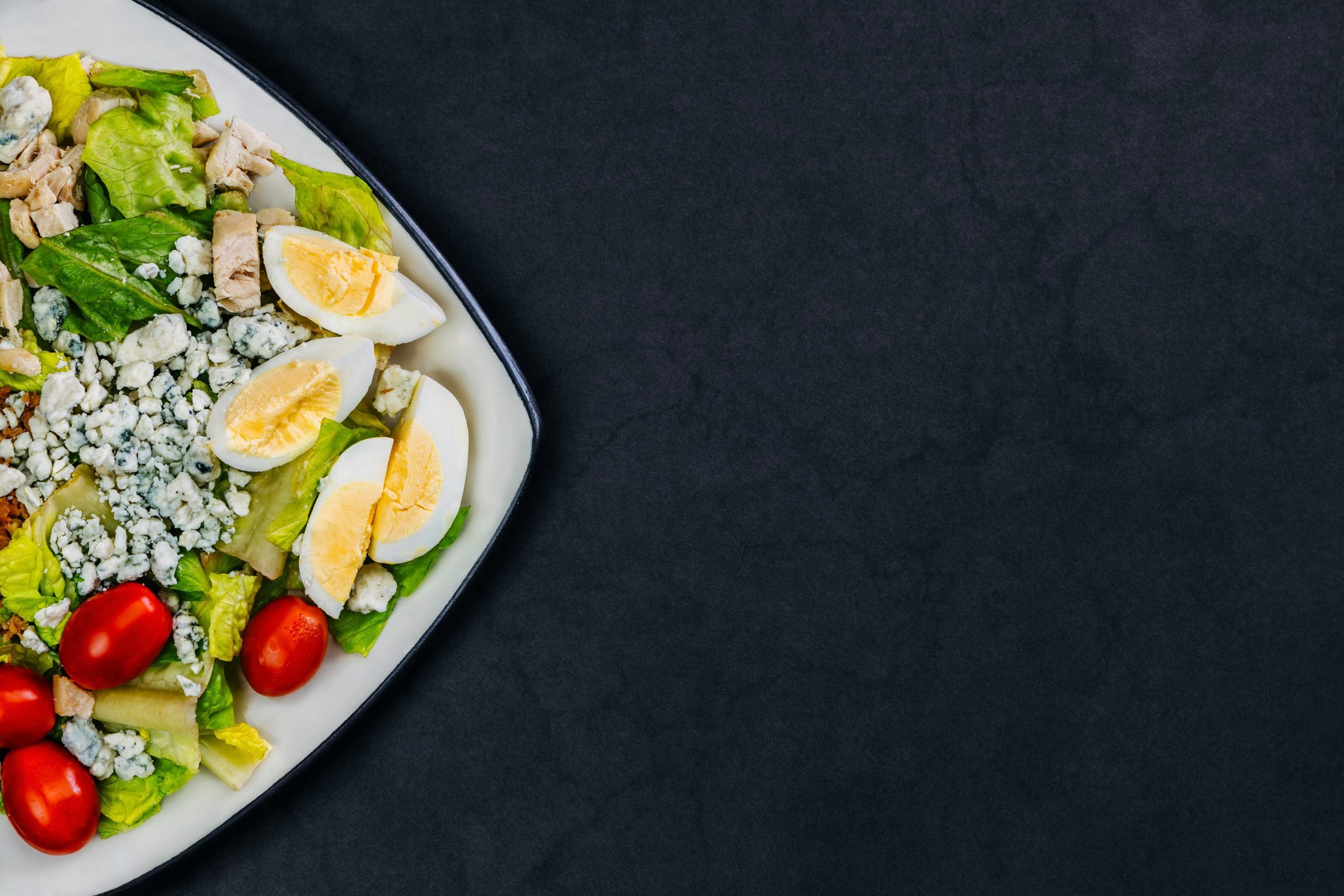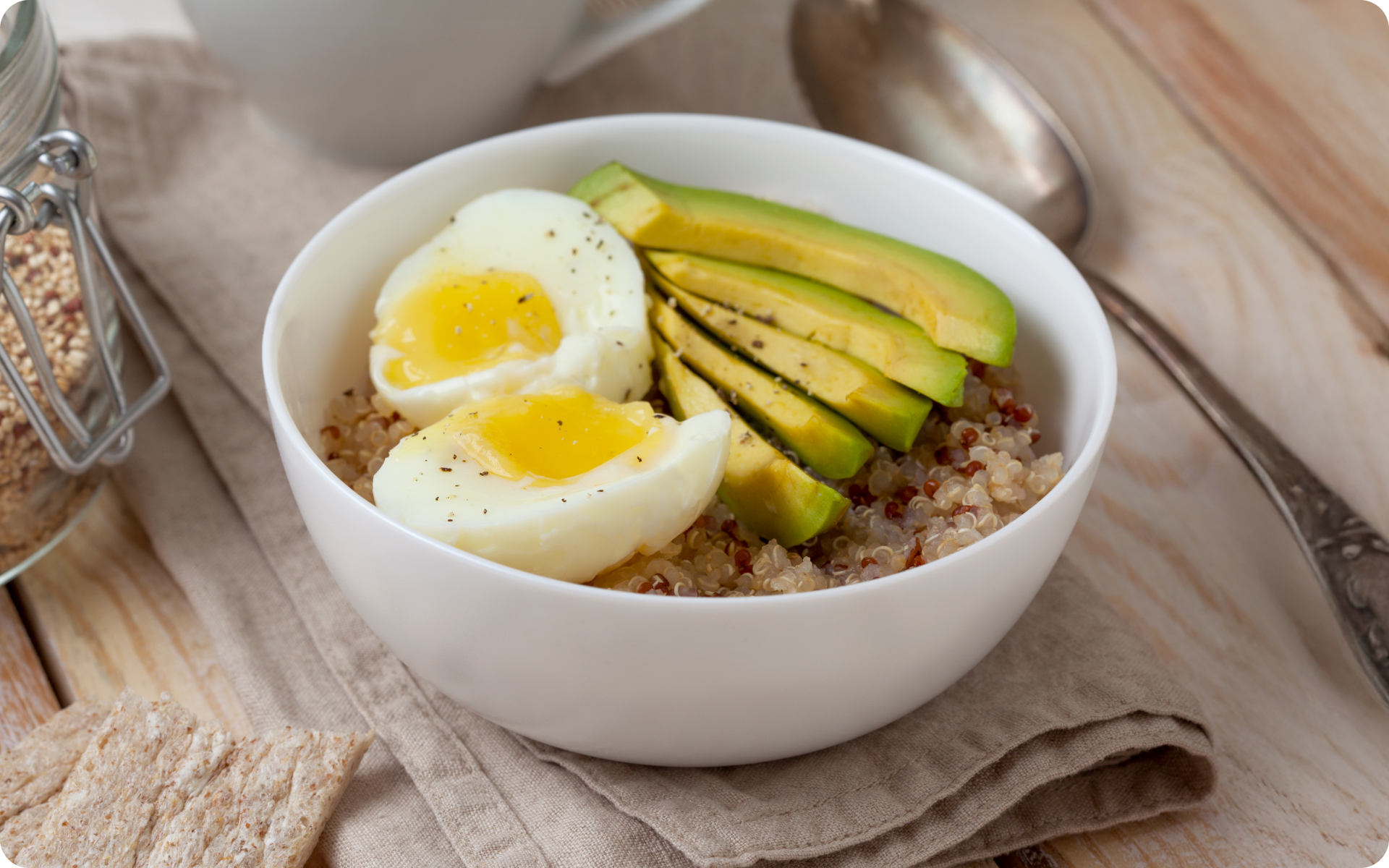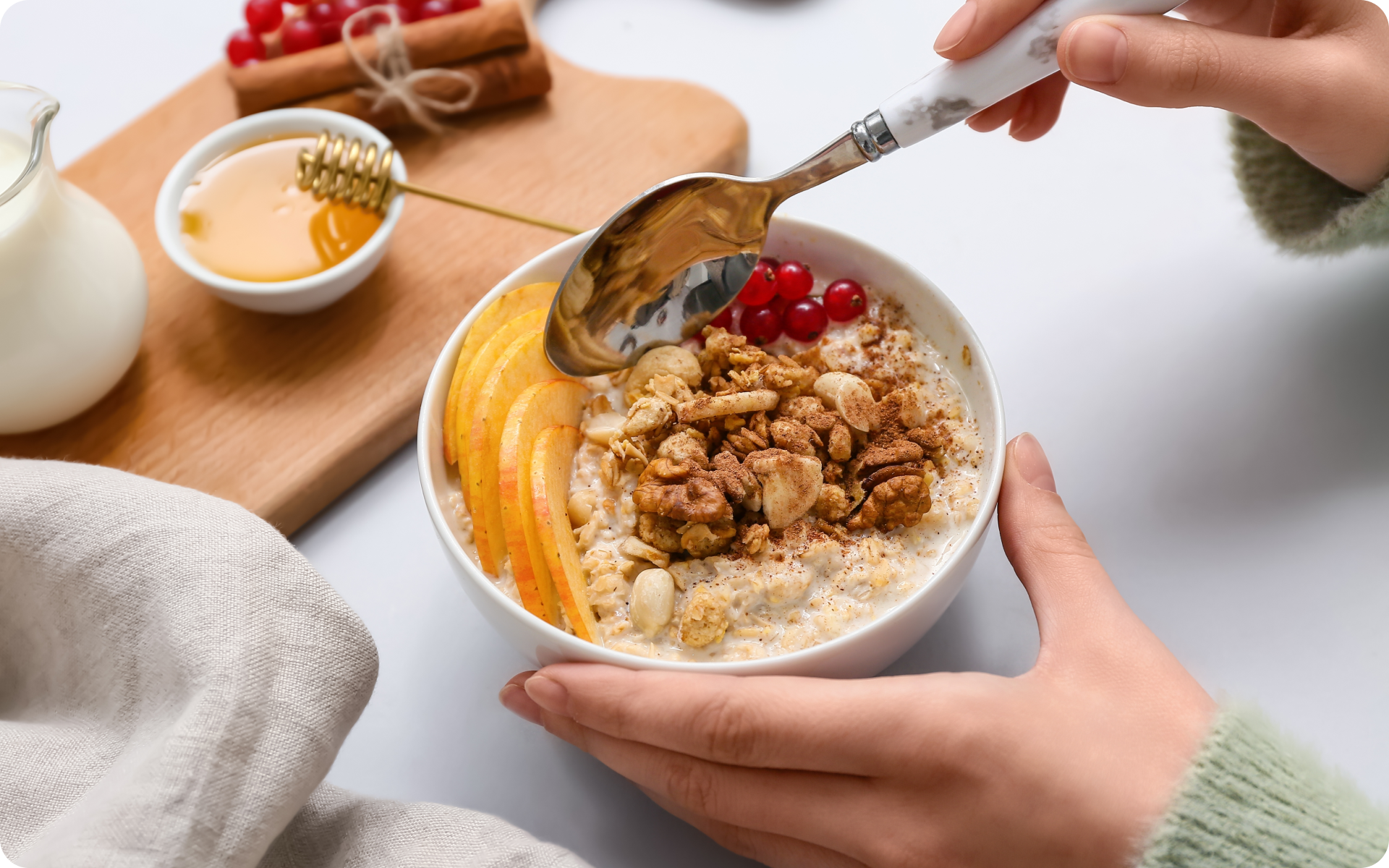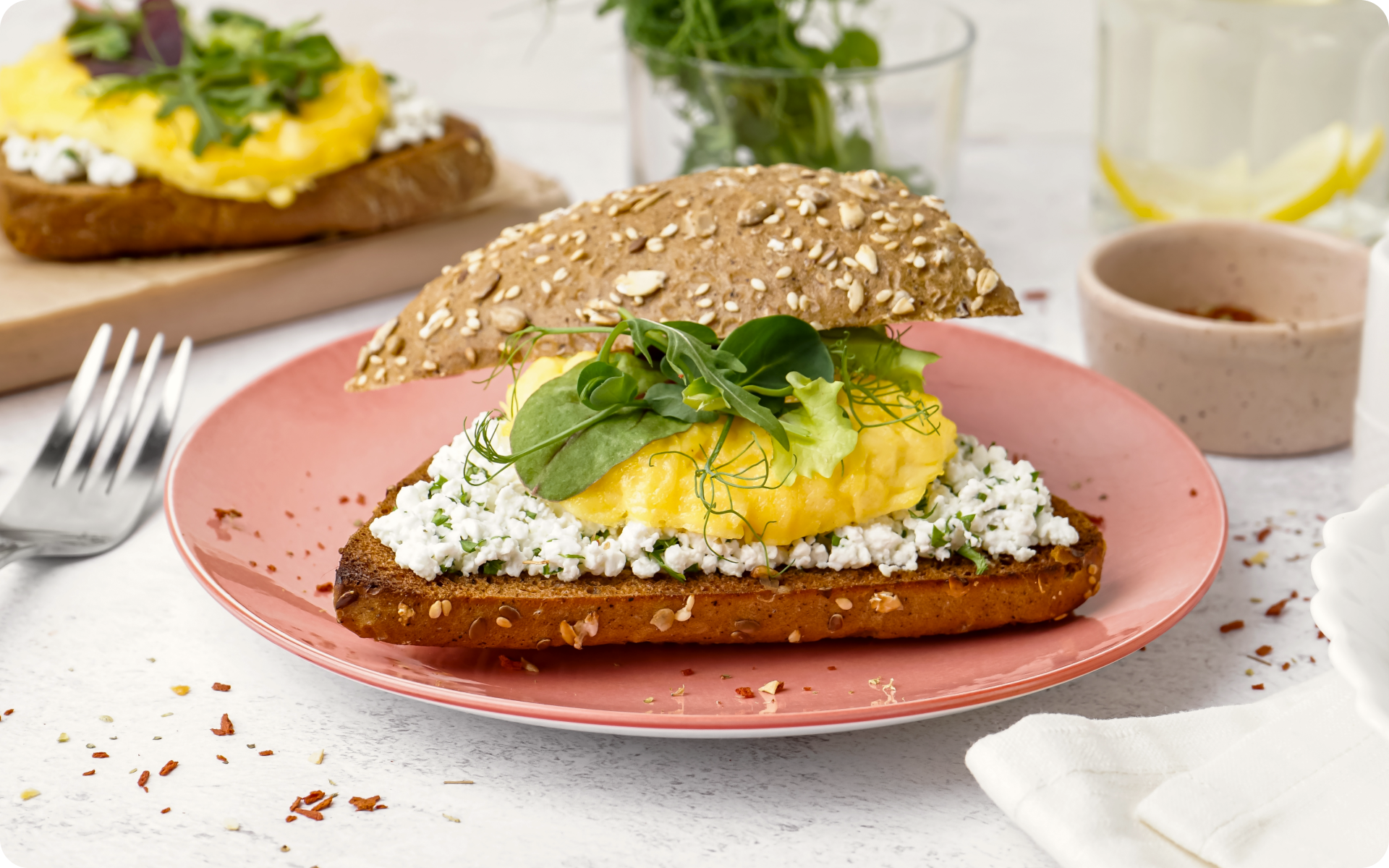We all have to eat to live – there’s literally no way around it. Food also can and should be enjoyable, and not confusing..
Understanding what a healthy diet looks like, as well as how many calories you should be consuming in a day can make a huge difference – not just in your weight, but also in your overall health.
An 1850 calorie meal plan can be a good meal plan for a sedentary adult woman who wants to maintain her weight or a more active woman who wants to lose weight. Some adult men who want to lose weight might also have a calorie goal around 1850.
But what does an 1800 calorie diet look like? Which foods are the best foods to have on a healthy 1850 calorie meal plan, female or male diet? Read on to find out what you should shop for and how to use those groceries to make the most delicious yet healthy meals!
Is 1850 Calories A Day Good?
Yes, it can be – at least for some people. According to the Dietary Guidelines for Americans 2020 – 2025, the average energy needs for sedentary to very active males aged 19 to 45 is anywhere between 2200 kcal to 3000 kcal. The average energy needs for sedentary to very physically active women in the same age range is 1800 kcal to 2400 kcal (6).
Looking at these numbers, we can see that an 1850 calorie meal plan can work for a number of people, depending on their goals. However, this is just a simple guideline and individual calorie needs will vary. When it comes to determining whether or not an 1850 or 1800 calorie meal plan will work for you, there are several factors that come into play.
Calorie needs are rarely ever the same from individual to individual, as they are affected by several factors including age, sex, body size, daily energy expenditure through physical and non-physical activity, pregnancy, hormonal status, health conditions, and more (4, 3).
All this means that while the stated average may work for some it could be too much or too little for you, depending on all the above-mentioned factors. That said, how do we determine if an 1850 calorie meal plan for males and females will work for you?
How To Tell If An 1800-Calorie Meal Plan Is Good For My Goals
You’ll need to estimate your daily energy needs to maintain your current weight. A calorie is a unit of energy. There are equations you can use to estimate your total daily energy expenditure (TDEE), such as the Harris-Benedict equation multiplied by an activity factor. Or, you can use an online calculator that does the math for you. You’ll input data such as your age, sex, height, and weight, and select an activity level that best describes your lifestyle.
Now, once you have your total daily energy expenditure (TDEE), then comes to step 2 – what are the goals that you wish to achieve, with this meal plan?
- If the number is around or below 1850 and you’d like to lose weight, then an 1850 calorie meal plan is probably not for you. Weight loss is achieved through a calorie deficit – i.e., eating less than your body burns and 1850 might be approximately what your body burns or even slightly more.
- If the number is below 1850 but you wish to gain weight, then this plan may be a right fit. Specifically following an 1850 or even an 1800 calorie high protein meal plan may be the best for you.
We explicitly mention protein as it is an important macronutrient to help you gain weight, especially lean body mass. It especially works great when you combine this diet with strength training exercises.
- If the number is above 1850 by 300 calories or more (up to 1000 kcal more) and your goal is weight and fat loss, then an 1850 calorie meal plan option might help you reach your desired goal.
Any diet can work as long as you have reduced your calorie intake, but a balanced diet such as the Mediterranean diet or just a regular balanced diet are usually the safest and easiest to stick to long-term.
- If the number is below 1850 and you are looking to increase your muscle mass then such a meal plan could be a good starting point in your journey as a fitness enthusiast.
Tailoring the diet to be higher in protein and complex carbs will help with muscle growth and your exercise goals. However, not many people’s maintenance calorie level needs fall much below 1850 calories, so this won’t be a common situation.
- This eating plan could also work for some bodybuilders on a cut – a phase where they eat at a calorie deficit in order to lose as much body fat as they can while maintaining as much muscle mass as possible.
However, because bodybuilders exercise strenuously and need a lot more energy than the average person, it is best to first confirm if 1850 is too little for average needs.
If you tend to let yourself off the hook, raise the white flag when things get tougher than you expected, send yourself on an unconscious binge-eating trip – BetterMe app is here to help you leave all of these sabotaging habits in the past!
Will I Lose Weight On 1800 Calories A Day?
If you’ve been curious about if you can use an 1850 calorie meal plan for weight loss, well, the answer for many people is yes – as long as your energy needs to maintain your current weight are 500 to 1000 calories more than 1800/1850.
When this is the case, eating 1800 kcal will end up creating a calorie deficit in your body – a state where the calories fed to your body are less than what it needs to sustain everyday functions and activities.
When this happens, the body is pushed to burn its stored fat in an effort to fill the gap and still have the energy to help sustain you. This, over time, leads to both fat and weight loss.
You must remember not to undereat in the name of a calorie deficit and weight loss. The recommended calorie deficit is eating 500 to 1000 kcal less than your total daily energy expenditure. And even then, women are advised not to eat less than 1200 kcal a day and men should not go below 1500 kcal a day, although many experts would argue that these cutoffs should be higher (2).
Read more: A Beginner Intermittent Fasting Meal Plan To Fit Your IF Journey
Can You Live On 1800 Calories A Day?
As illustrated in the details above, as well as the Dietary Guidelines (6), it is absolutely possible for the average sedentary woman and certain people wanting to lose weight, to survive on 1800 calories a day. If you feel like this diet is for you, here is a table that you can use as a checklist of some of the best foods to shop for:
The Best Foods For A 1850 Calorie Meal Plan
Non-starchy Vegetables
Starchy Vegetables
Dairy & Alternatives
Kale,
Spinach
Peppers
Zucchini
Broccoli
Bok choy
Swiss chard
Tomatoes
Cauliflower
And many others
Butternut & winter squash
Sweet potatoes
Pumpkin
Potatoes
Plantains
Corn
Turnips
milk
All kinds of cheeses
Yogurt
Kefir
*Plant based alts
Almond milk, soy milk, oat milk, etc
Animal protein & Seafood
Plant protein (+legumes)
Healthy fats
Poultry like turkey, chicken, and duck
As well leans cuts of beef, lamb, bison, veal, etc
Seafood including una, salmon, halibut, scallops, mussels, clams, shrimp, crab, etc
Eggs
Peas
Tofu
Edamame
Tempeh
Seitan
Chickpeas
Beans (black, kidney, etc.)
Lentils
Avocado
Avocado oil
Olive oil
Other vegetable oils
Wholegrains
Fruits
Nuts & Seeds
Brown rice
Oats
Bulgur
Quinoa
Farro
Millet
Whole wheat bread and pasta
All kinds of berries
Pineapples
Bananas
Grapes
Watermelon
Apples
Peaches
And many more
Peanuts
Chia seeds
Almonds
Sunflower seeds
Walnuts
Pumpkin seeds
Pine nuts
Hemp seeds
(plus nut butters)
You can also add herbs and spices of choice to help make your meals more appetizing.
Please note, if following an 1850 calorie meal plan as a vegetarian, the above list can still work, just avoid any animal products and/or seafood that are prohibited under your version of vegetarianism.
What Does A 1800 Calorie Meal Look Like?
Thanks to the popularity of the OMAD intermittent fasting diet, many people are looking to try eating once a day – which forces them to eat a huge meal with thousands of calories, all in one sitting. While intermittent fasting might have some benefits (1), this specific variation is not recommended.
Aside from all the dizziness, fatigue, concentration issues, mood swings, and other problems that come with spending 23 hours without eating, most people cannot eat this much in just 1 hour – especially if you try to eat this much via healthy meals.
Instead of trying to find out what an 1800 kcal meal looks like, here’s a much healthier and easy-to-do breakdown of 1800 kcal meals that you can have throughout the day.
Sample 1850 Calorie Meal Plan High Protein Diet
Here is a 2-day example of what your meals could look like, while eating 1850 kcal a day on a high-protein, moderately low-carbohydrate diet
Day 1
- Breakfast – Mushroom, egg, spinach, feta wrap (304 kcal)
- Snack – Avocado Tuna dip (served with veggie sticks) (130 kcal)
- Lunch – Baked salmon over creamy eggplant (395 kcal)
- Snack – Protein almond banana smoothie (402 kcal)
- Dinner – Turkey stir-fry (501 kcal)
- Snack – Cottage Cheese with maple syrup drizzling (121 kcal)
Total intake for the day: Calories: 1853. Fats: 68.3 g. Protein: 137.9 g. Carbs: 162.9 g.
Day 2
- Breakfast – Bean & Cheese Burrito (376 kcal)
- Snack – Beef & Rice Stuffed Peppers (624 kcal)
- Lunch – Chicken, Quinoa Salad (431 kcal)
- Dinner – Chicken Chilli (416 kcal)
Total intake for the day: Calories: 1847. Fats: 87.2 g. Protein: 129.1 g. Carbs: 123 g.
BetterMe app is a foolproof way to go from zero to a weight loss hero in a safe and sustainable way! What are you waiting for? Start transforming your body now!
FAQs
Is 2000 Calories A Day True?
2000 calories per day is approximately the energy needs of a sedentary to moderately active adult woman, depending on age and other factors (10). It is often used as an average. For example, the daily values (DV)s of vitamins and minerals on nutrition labels are based on a 2000 calorie per day diet. However, it is not a recommendation that everyone should eat 2000 calories per day. Energy needs are based on a variety of individual factors.
Is 800 Calories A Day A Lot?
No, it is not. In fact, according to the Dietary Guidelines for Americans, 800 calories a day is too little for anyone aged older than 12 to 15 months (6). If even toddlers are not recommended to eat this little amount of calories, adults shouldn’t be considering it.
Is 1800 Kcal Too Much?
The answer to this is largely dependent on the individual. As seen above, an 1800 calorie meal plan might be too much for some, too little for others, and just right for another group of people.
Is 1800 Calories Too Low For A Cut?
Not necessarily. It depends on your total daily energy expenditure and how much of a calorie deficit you are aiming to create. Thus, if 1800 kcal falls within the target range for you, then it’s absolutely perfect for you.
How Much Protein Do I Need For an 1800 Calorie Diet?
The daily recommended protein intake for healthy adults is anywhere between 10% to 35% of your total calorie intake. For a more personalized macronutrient intake, it is sometimes advised that you should consume 1.2 to 1.8 g per kg of your body weight in protein, depending on your level of physical activity and goals (7).
How To Eat Only 1800 Calories A Day
You can be sure to only consume 1800 calories a day by tracking everything you eat and drink using a reputable calorie counting app. Such apps can warn you if you are about to go above your calorie limit for the day. This can help keep you on track.
Is A 1400 Calorie Meal Plan Enough For An Adult?
A 1400 calorie meal plan might be enough for a sedentary woman looking to shed some extra pounds, but the same amount will likely be too little for most adult men and can be considered under eating.
The Bottom Line
Depending on the person, an 1800 calorie meal plan can be the perfect recipe to help them with their weight loss, weight gain, and even their muscle growing efforts. To determine if this specific diet will work for your goals, we recommend using the BetterMe Calorie Tracker.
By plugging in your information and goals, it will help you determine if such a plan will work for you or not. If such a plan will work for you, make sure to aim for balanced meals using a variety of healthy ingredients, such as the ones outlined in the table above.
DISCLAIMER:
This article is intended for general informational purposes only and does not serve to address individual circumstances. It is not a substitute for professional advice or help and should not be relied on for making any kind of decision-making. Any action taken as a direct or indirect result of the information in this article is entirely at your own risk and is your sole responsibility.
BetterMe, its content staff, and its medical advisors accept no responsibility for inaccuracies, errors, misstatements, inconsistencies, or omissions and specifically disclaim any liability, loss or risk, personal, professional or otherwise, which may be incurred as a consequence, directly or indirectly, of the use and/or application of any content.
You should always seek the advice of your physician or other qualified health provider with any questions you may have regarding a medical condition or your specific situation. Never disregard professional medical advice or delay seeking it because of BetterMe content. If you suspect or think you may have a medical emergency, call your doctor.
SOURCES
- Beneficial effects of intermittent fasting: a narrative review (2022, ncbi.nlm.nih.gov)
- Calorie counting made easy (2024, health.harvard.edu)
- Calories: Total Macronutrient Intake, Energy Expenditure, and Net Energy Stores (n.d., ncbi.nlm.nih.gov)
- Calories (2022, ncbi.nlm.nih.gov)
- Clinical Evidence of Low-Carbohydrate Diets against Obesity and Diabetes Mellitus (2023, ncbi.nlm.nih.gov)
- Dietary Guideline for Americans 2020 – 2025 (n.d., dietaryguidelines.gov)
- Exercise and the Institute of Medicine recommendations for nutrition (2005, pubmed.ncbi.nlm.nih.gov)
- Low-Carbohydrate Diet (2023, ncbi.nlm.nih.gov)
- Nutrition Recommendations for Bodybuilders in the Off-Season: A Narrative Review (2019, ncbi.nlm.nih.gov)
- Dietary Guidelines for Americans, 2020-2025 (dietaryguidelines.gov, n.d.)









